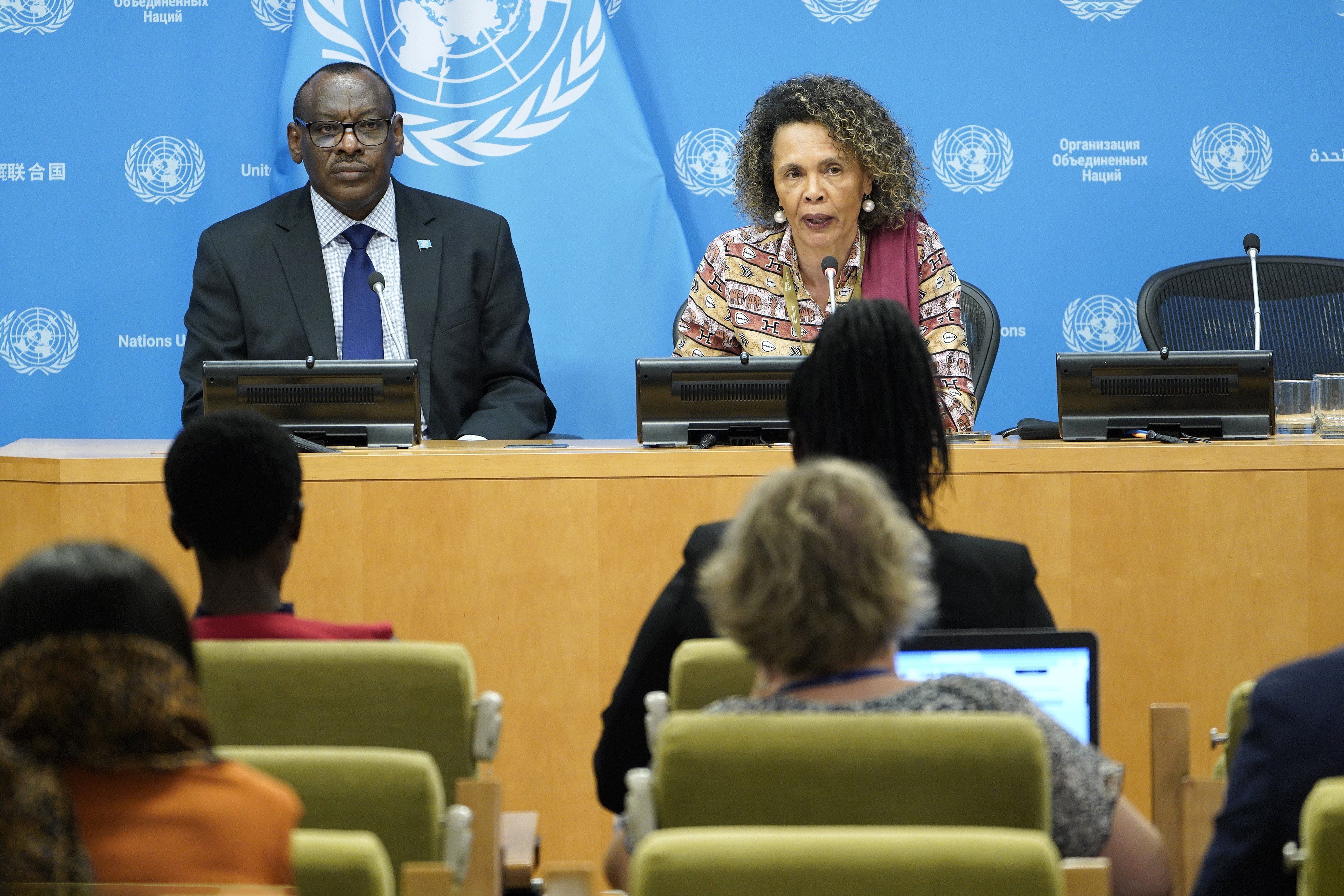August 13, 2024
“We cannot accept that the world’s preeminent peace and security body lacks a permanent voice for a continent of well over a billion people — a young and rapidly growing population — making up 28 percent of the membership of the United Nations.” So said UN Secretary-General Antonio Guterres on Monday as he endorsed the idea of an African delegation becoming a permanent member of the UN Security Council.
Guterres offered few specifics on how Africa should be represented. That appears to be a question for the African Union. For now, the 15-member Security Council consists of five permanent members with veto power – China, France, Russia, the US, and the UK – and 10 nonpermanent seats allocated regionally, including three seats for African states, two for Asia-Pacific, two for Latin America and the Caribbean, two for Western Europe and other states; and one for Eastern Europe.
UNSC permanent members have a veto over votes of the Council. Sierra Leone President Julius Maada Bio told the Council on Monday that Africa should have two permanent seats and added that “Africa wants theveto abolished. However, if UN member states wish to retain the veto, it must be extended to all new permanent members as a matter of justice.”
Guterres said in January that all five current permanent members favored greater African representation, though they will certainly haggle over the details of reform. But for now, the number of voices in favor, at least in principle, continues to grow.More For You
World Central Kitchen staff hand out free soup in a neighbourhood that experiences electricity and heating outages following recent Russian attacks on Ukraine’s civilian infrastructure during subzero temperatures in Kyiv, Ukraine February 3, 2026.
REUTERS/Thomas Peter
1,170: The number of high-rise buildings in Kyiv that were left without heating following a barrage of Russian attacks last night on Ukraine’s capital and its energy facilities, per Kyiv Mayor Vitali Klitschko.
Most Popular
What We’re Watching: US critical minerals summit, Rafah crossing reopens, Border violence in Pakistan
Feb 02, 2026
U.S. President Donald Trump and Japanese Prime Minister Sanae Takaichi hold up signed documents regarding securing the supply of critical minerals and rare earths, at a bilateral meeting at Akasaka Palace in Tokyo, Japan, October 28, 2025.
REUTERS/Evelyn Hockstein
Representatives from the European Union, United Kingdom, Japan, and others will meet in Washington this week to discuss a strategic alliance on critical minerals.
Hard numbers: Large protests in Czechia, UAE-linked firm has large stake in the president’s company, & More
Feb 02, 2026
People take part in a rally in support of Czech President Petr Pavel, organised by Million Moments for Democracy group in reaction to dispute between President Pavel and Czech Foreign Minister and Motorists chair Petr Macinka, in Prague, Czech Republic, February 1, 2026.
REUTERS/Eva Korinkova
80,000: The number of people estimated to be in the streets of Czechia on Sunday to show their support for President Petr Pavel after he blocked the nomination of an environmental minister who performed the Nazi salute and posted Nazi memorabilia.
US President Donald Trump and musician Nicki Minaj hold hands onstage at the US Treasury Department's Trump Accounts Summit, in Washington, D.C., USA, on January 28, 2026.
REUTERS/Kevin Lamarque
The US has started handing $1,000 to the bank accounts of newborn babies. But can policies like this one help boost sagging birthrates in advanced democracies?
© 2025 GZERO Media. All Rights Reserved | A Eurasia Group media company.
